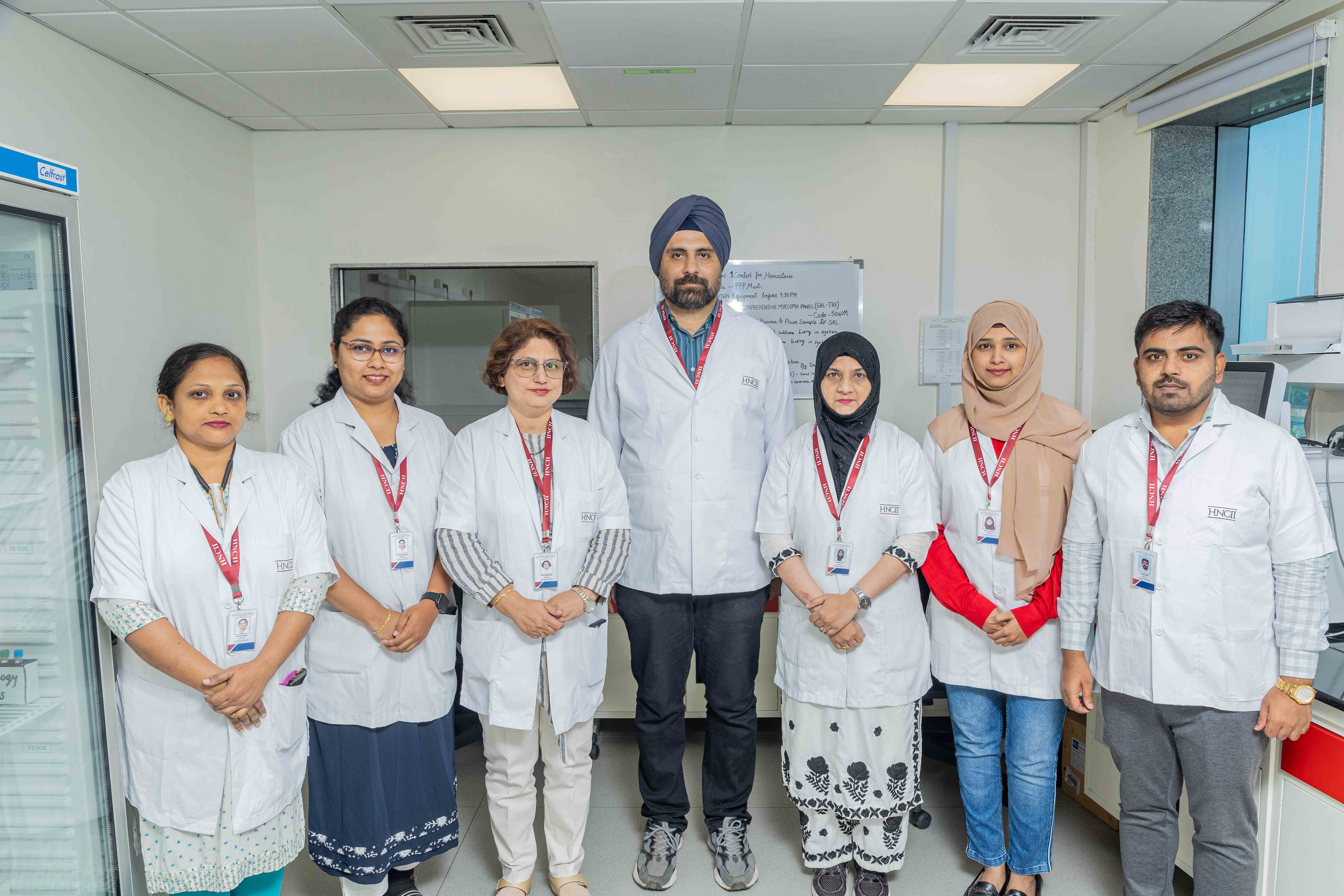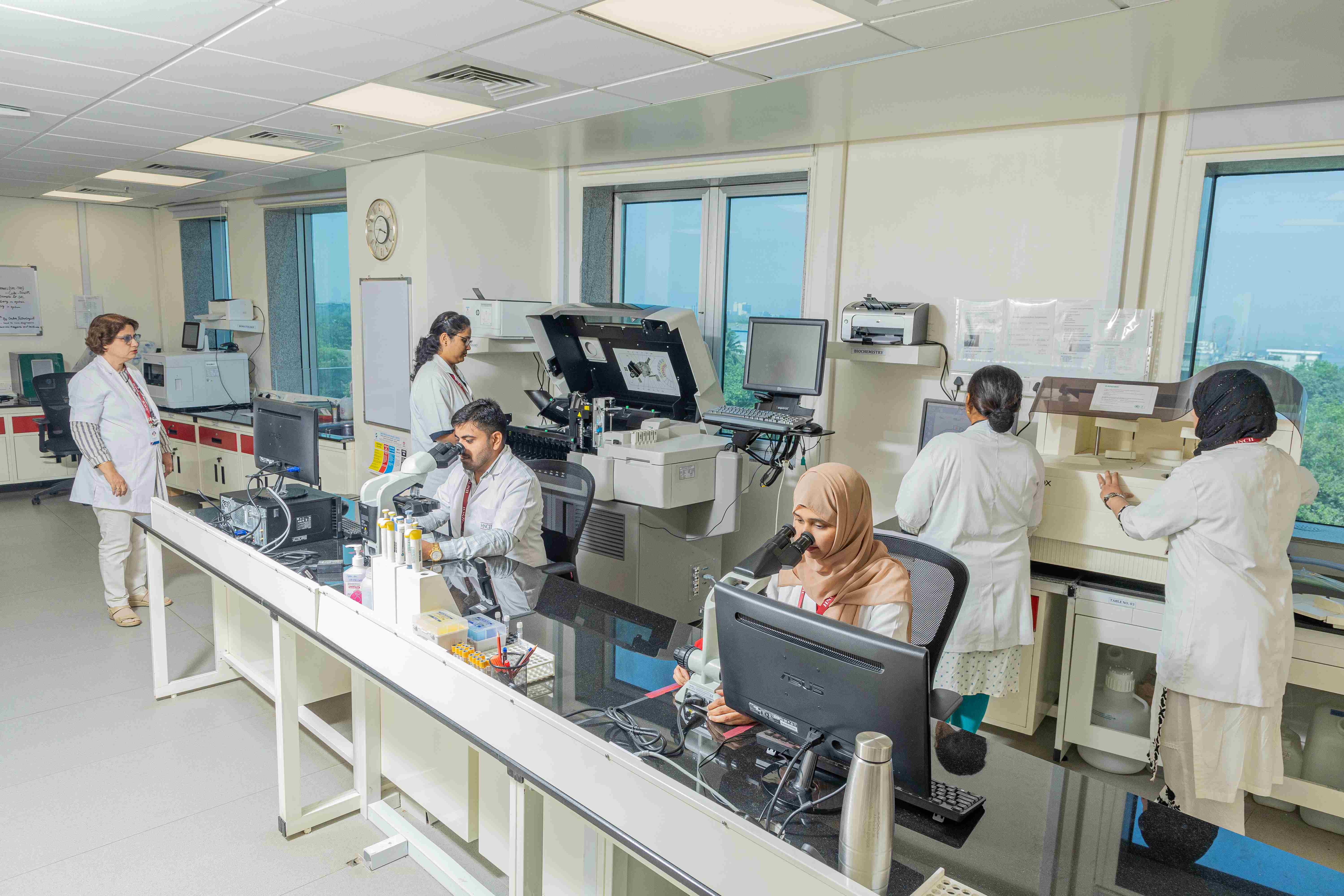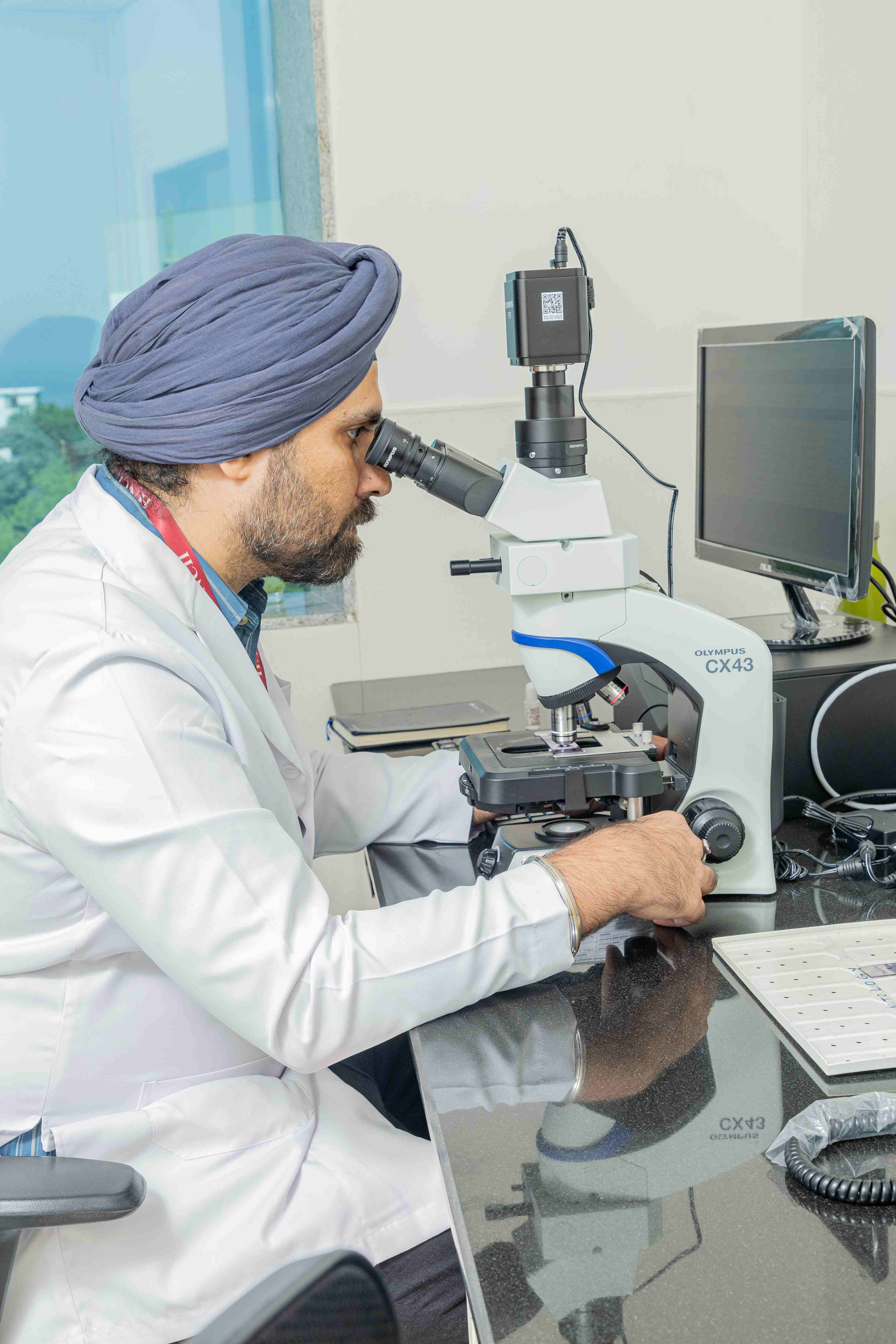Pathology Services
Pathology services in a cancer hospital are essential for the diagnosis, staging, and treatment planning of cancer patients. Pathologists, medical professionals specialized in the study of diseases, play a central role in analyzing tissue samples, blood specimens, and other biological materials to identify the presence of cancer, characterize its subtype, assess its aggressiveness, and monitor treatment response.
Here's an overview of pathology services offered in a cancer hospital:
- Histopathology: Histopathology involves the examination of tissue specimens under a microscope to identify cellular changes indicative of cancer. Pathologists analyze biopsy samples obtained from tumors or suspicious lesions to:
- Confirm the presence of cancer.
- Determine the tumor type and subtype (e.g., adenocarcinoma, squamous cell carcinoma).
- Assess tumor grade (degree of cellular differentiation) and histological features.
- Identify prognostic factors and predictive biomarkers that may influence treatment decisions.
- Detect the presence of cancer spread (metastasis) in lymph nodes or other tissues.
- Frozen section services: are a specialized pathology technique used during surgical procedures to provide rapid intraoperative diagnostic information. During a surgical procedure, when a suspicious tissue or lesion is encountered, the surgeon may request a frozen section analysis. A small sample of the tissue is removed and quickly frozen using cryostat techniques. The frozen tissue is then thinly sliced, and the sections are stained with special dyes. A pathologist examines the stained sections under a microscope to make a rapid diagnosis regarding the nature of the tissue being examined. Frozen sections can confirm the presence of malignant cells, guide the extent of surgical resection, and assess surgical margins to ensure complete tumor removal. Frozen sections are often used for preliminary diagnosis, and final confirmation may require additional tissue processing and evaluation.
- Cytology: Cytology involves the examination of cells collected from various body fluids or tissues to detect cancerous changes. Common cytology procedures include:
- Fine Needle Aspiration (FNA): Collection of cells from a tumor or mass using a thin needle for examination under a microscope.
- Pap Smear: Screening test for cervical cancer that examines cells collected from the cervix for abnormalities.
- Body Fluid Analysis: Examination of cells in pleural fluid, ascites, cerebrospinal fluid, or other body fluids to detect cancerous cells or infectious agents.
- Molecular Pathology: Molecular pathology techniques analyze genetic and molecular alterations in cancer cells to provide valuable insights into tumor behavior and guide targeted therapy decisions. These techniques include:
- Immunohistochemistry (IHC): Staining of tissue sections with antibodies to detect specific proteins expressed in cancer cells, aiding in tumor classification and identification of therapeutic targets.
- Fluorescence In Situ Hybridization (FISH): Visualization of specific DNA sequences or gene rearrangements in cancer cells, helpful for diagnosis and predicting response to targeted therapies.
- Next-Generation Sequencing (NGS): Comprehensive genomic analysis of tumor DNA to identify mutations, gene amplifications, or other genetic alterations associated with cancer progression and drug sensitivity.
- Blood Tests and Tumor Markers: Pathology laboratories perform blood tests to measure tumor markers and other biomarkers associated with specific types of cancer. Elevated levels of tumor markers such as PSA (prostate-specific antigen) for prostate cancer or CA-125 for ovarian cancer may indicate the presence of disease, monitor treatment response, or detect disease recurrence.
- Biobanking and Research: Pathology departments often maintain biobanks of tissue samples and specimens for research purposes, facilitating studies on cancer biology, biomarker discovery, and the development of new diagnostic and therapeutic approaches.
Pathology services in a cancer hospital are integral to delivering accurate diagnoses, personalized treatment strategies, and quality patient care throughout the cancer care continuum. Close collaboration between pathologists, oncologists, surgeons, and other healthcare providers ensures comprehensive management of cancer patients based on precise pathological evaluations and multidisciplinary expertise.





.jpg)